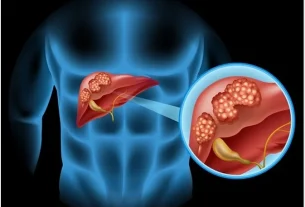Devanjana Mukherjee, Khabri Media
In an age dominated by social media and constant connectivity, one might assume that loneliness is a relic of the past. However, the reality is starkly different.

Pic: Social Media
As we delve into the intricate layers of this pervasive emotion, it becomes evident that this disease is not just a fleeting experience; it has profound implications on physical and mental well-being. Loneliness has emerged as a silent epidemic, affecting individuals across all age groups and demographics. To subscribe please click tau.id/2iy6f and access our live channel.
ALSO READ: Prevention and Cure of Dementia
The Anatomy of Loneliness
Loneliness is not solely defined by physical isolation; it is a complex emotional state that arises when there is a perceived gap between an individual’s desired and actual social connections. One can feel lonely in a crowded room or even surrounded by friends and family if the depth and quality of relationships are lacking.
The reasons behind loneliness are diverse, ranging from social isolation, the breakdown of traditional communities, and the impact of modern technology on interpersonal relationships.
- In the digital age, social media platforms offer a paradoxical blend of connectivity and isolation.
- The curated nature of social media can exacerbate feelings of inadequacy and exclusion, leading to a sense of isolation.
- The erosion of traditional social structures, such as close-knit communities and extended families, contributes to a growing sense of disconnection.
- The emphasis on individualism in contemporary society often leaves individuals without a strong support system, making them more susceptible to loneliness.

Pic: Social Media
Consequences of Loneliness
Loneliness is not merely a fleeting emotional state; it can have severe consequences on both physical and mental health which has been mentioned below.
- Increased stress levels
- Compromised immune system
- Higher risk of cardiovascular diseases
- Mental health issues such as depression, anxiety, and cognitive decline
- Hinder personal and professional growth
- Diminished sense of self-worth
- Lack of motivation
Combatting Loneliness
Addressing loneliness requires a multi-faceted approach that encompasses both individual and societal levels. Here are some strategies to combat loneliness:
- Join Communities: Whether it’s a local club, hobby group, or an online community, joining like-minded individuals can provide a sense of belonging. Shared interests create a foundation for meaningful connections.
- Utilize Technology Mindfully: While technology can contribute to loneliness, it can also be a tool for connection. Use social media to maintain and strengthen existing relationships, but be mindful of its impact on mental health. Limit screen time and focus on face-to-face interactions when possible.
- Volunteer: Helping others not only contributes to the community but also fosters a sense of purpose and connection. Volunteering can be a powerful antidote to loneliness.
- Cultivate Meaningful Connections: Building meaningful connections requires time and effort. Engage in activities that align with your interests, attend social events, and be open to meeting new people. Quality often outweighs quantity in relationships.
- Seek Professional Help: If loneliness is significantly impacting your well-being, seeking the guidance of a mental health professional can be instrumental. Therapy provides a safe space to explore and address underlying issues.

Pic: Social Media
Accentuated by WHO as a pervasive and complex issue that requires both individual and societal attention. Recognizing the factors contributing to loneliness, understanding its consequences, and actively working towards building meaningful connections are crucial steps in combating this silent epidemic.
While loneliness itself is not a contagious disease like a virus, it can contribute to a range of health problems that may have broader societal implications. Efforts to address loneliness often involve promoting social connections, community engagement, and mental health support.




